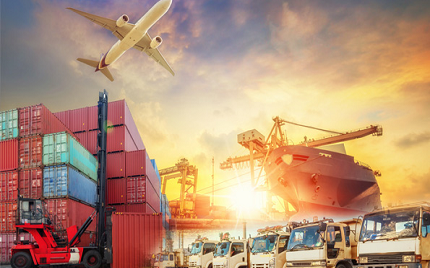India enjoys an important position in the global pharmaceuticals sector. The country also has a large pool of scientists and engineers who have the potential to steer the industry ahead to an even higher level. India is the largest producer of Generic Drugs in the world. India’s pharmaceutical exports stood at US$ 17.27 billion in FY18 and have reached US$ 10.80 billion in FY19 (up to October 2018).
Posts
RoHS stands for Restriction of Hazardous Substances
RoHS, also known as Directive 2002/95/EC, originated in the European Union on 2002 and restricts the use of six hazardous materials found in electrical and electronic products. All applicable products in the EU market since July 1, 2006 must pass RoHS compliance.
WEEE stands for Waste Electrical and Electronic Equipment
The WEEE Directive is a legislation that in conjunction with RoHS, mandates for the collection, recovery and recycling of electronics, and component materials. The WEEE Directive was passed in the European Community (EC) in February 2003.
Supply Chain Risk is defined as the “Conclusions and campaign that have consequences that could negatively affect information or goes within a supply chain”. There was a survey conducted by APICS at its members and customers to analyze the practice of supply chain risk.
The practitioner surveyed to explore the current trends in supply chain and operation
The technique of developing the tactical plans that provide ability to the management to strategically explicit its business to achieve the competitive advantage on a regular basis by amalgamating client-centralized marketing ideas for new and existing commodities with the administration of the supply chain is said to be S& OP.
All the plans for the business (sales, marketing, development, manufacturing, sourcing and financial)
In order to investigate the different levels of experience and maturity required for sustainability practices and what are the benefits that these practices bring into the organization, APICS conducted a survey over 9000 supply chain professionals. The evolving new technologies and improved processes along with the stakeholder preferences, sustainability has become the integrated process with the traditional supply chain.
The UN Global Compact is the controller platform for the advancement, implementation, and disclosure of authoritative and feasible corporate policies and practices. It seeks to order business practices and scenarios everywhere with ten globally accepted theorems in the areas of Environment, Human Rights and Anti-Corruption.
The UN Global Compact Management Model is a dynamic framework developed in consulting with corporate sustainability and management experts, leading people from civil society and academia in the objective of helping companies to obtain high level performances and to create real and everlasting value for the business as well as the society.
The Global Reporting Initiative (GRI) was created to make the Sustainability Reports internationally agreeable with disclosures and metrics enabled information so that the stakeholders can access, compare and make informed decisions. In this way, the G4 guidelines provide reporting fundamentals, standard publications and implementation standards for the development of the sustainability reports by organizations regardless of their
Security risks can create a major impact in any business. These security risks can come in any form. Transport operators who anticipate these risks and plans accordingly can recover more quickly than others. Many of the larger transport operators has their own Security and Risk Management system but the smaller and medium sized operators may be less equipped to meet the demands of the security risks when they appear.
Association For Supply Chain Management (ASCM), USA
- Default
- Title
- Date
- Random
-
Read More
Certified Supply Chain Certification Program popularly known as CSCP from APICS, USA aids an individual to prepare and showcase ones knowledge and skills in the supply chain operations of an organization.
Register for Complimentary Demo Session
Download CSCP Brochure
CSCP Success Stories -
Read More
Certified in Logistics, Transportation and Distribution (CLTD) certifications aims at providing in depth know-how to become a recognized authority in the fields of logistics management, transportation & distribution.
Register for Complimentary Demo Session
Download CLTD Brochure
CLTD Success Stories
Join IISCM Supply Chain Network -
Read More
Certified in Production and Inventory Management (CPIM) credential from APICS, USA is considered to be the gold standard in the area of production & inventory management and control.
Register for Complimentary Demo Session
Download CPIM Brochure
CPIM Success Stories



